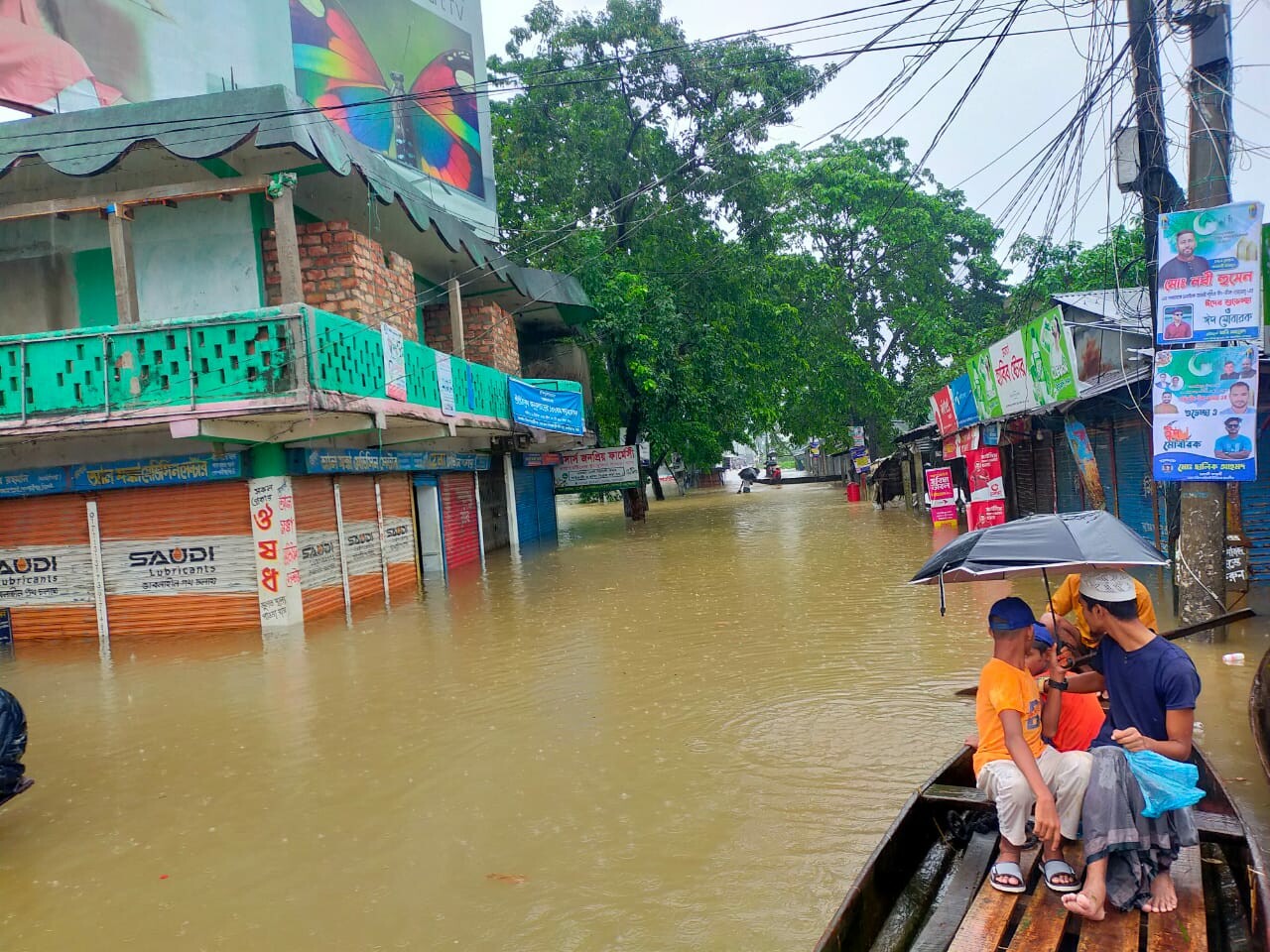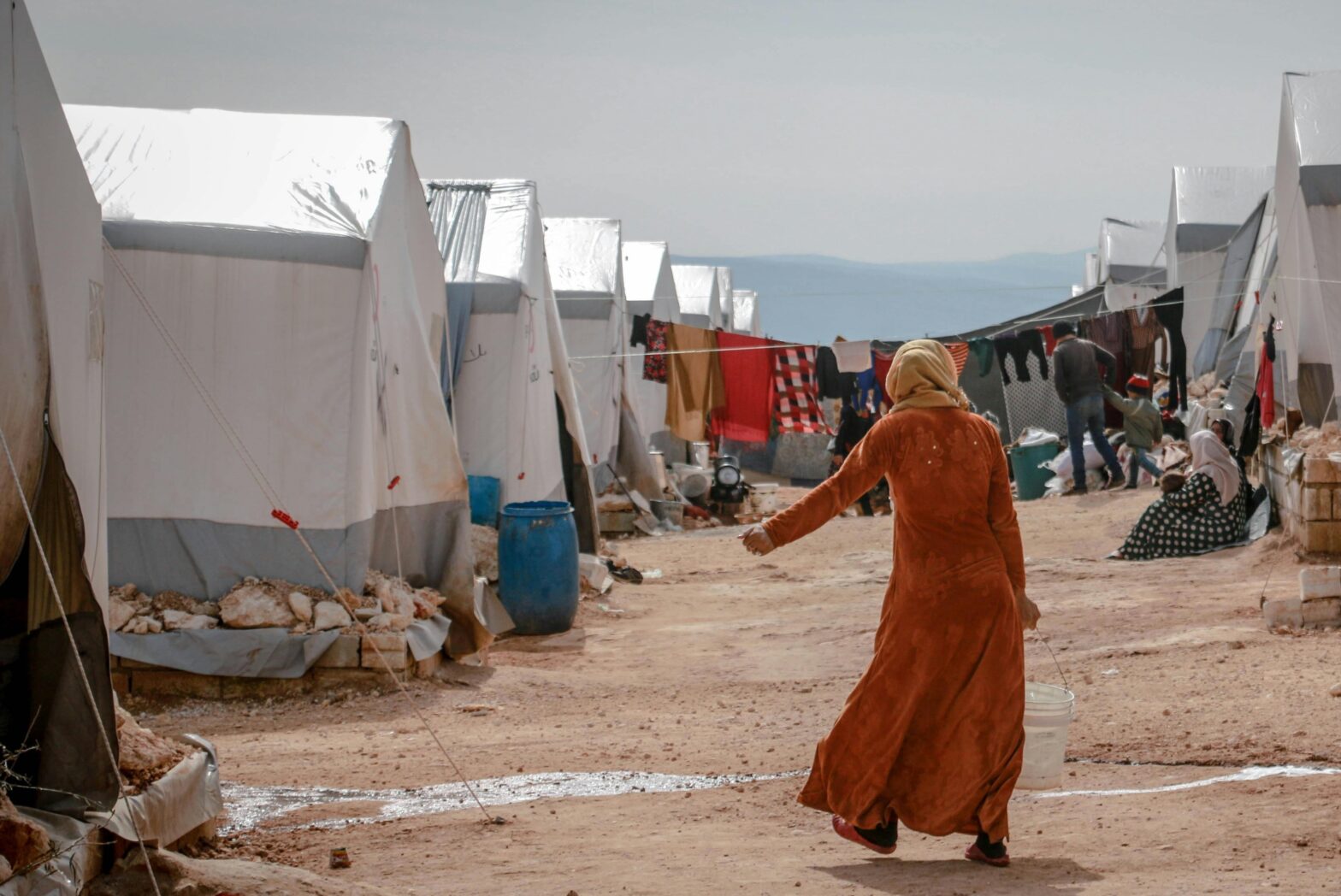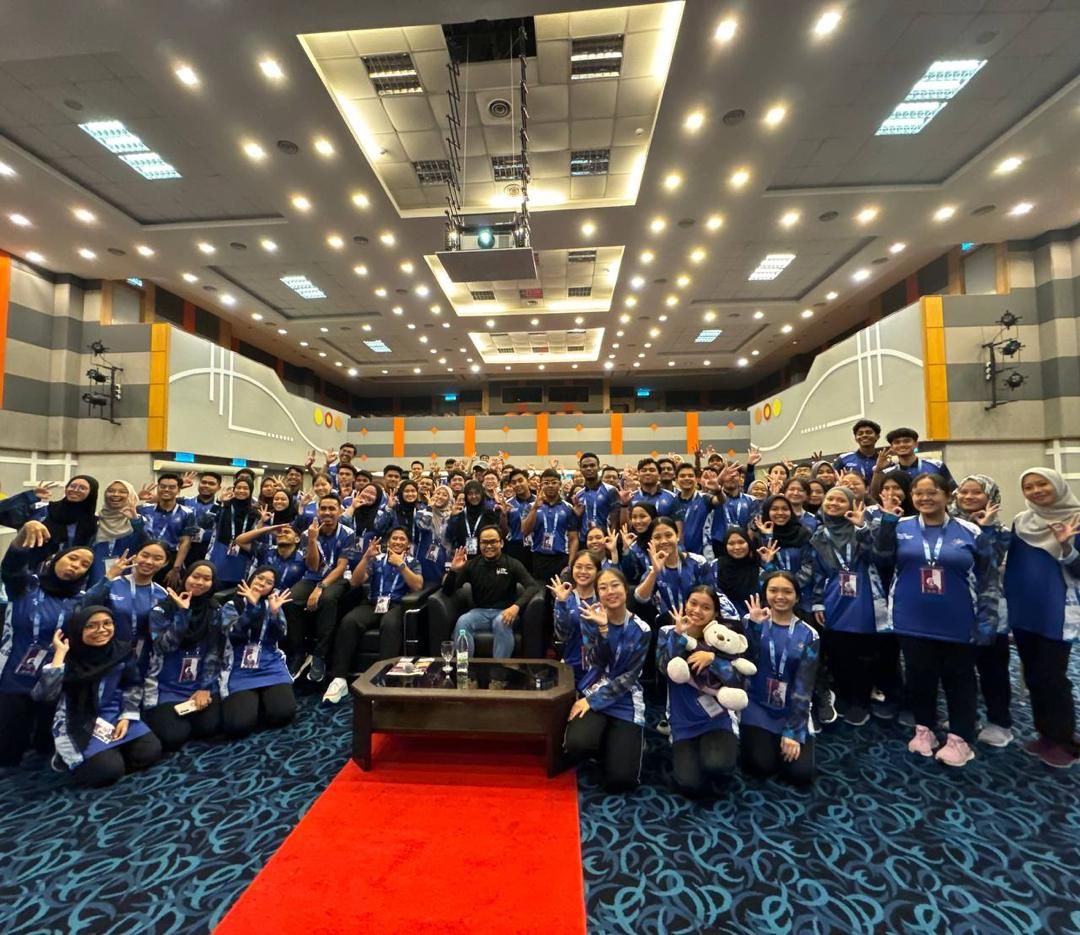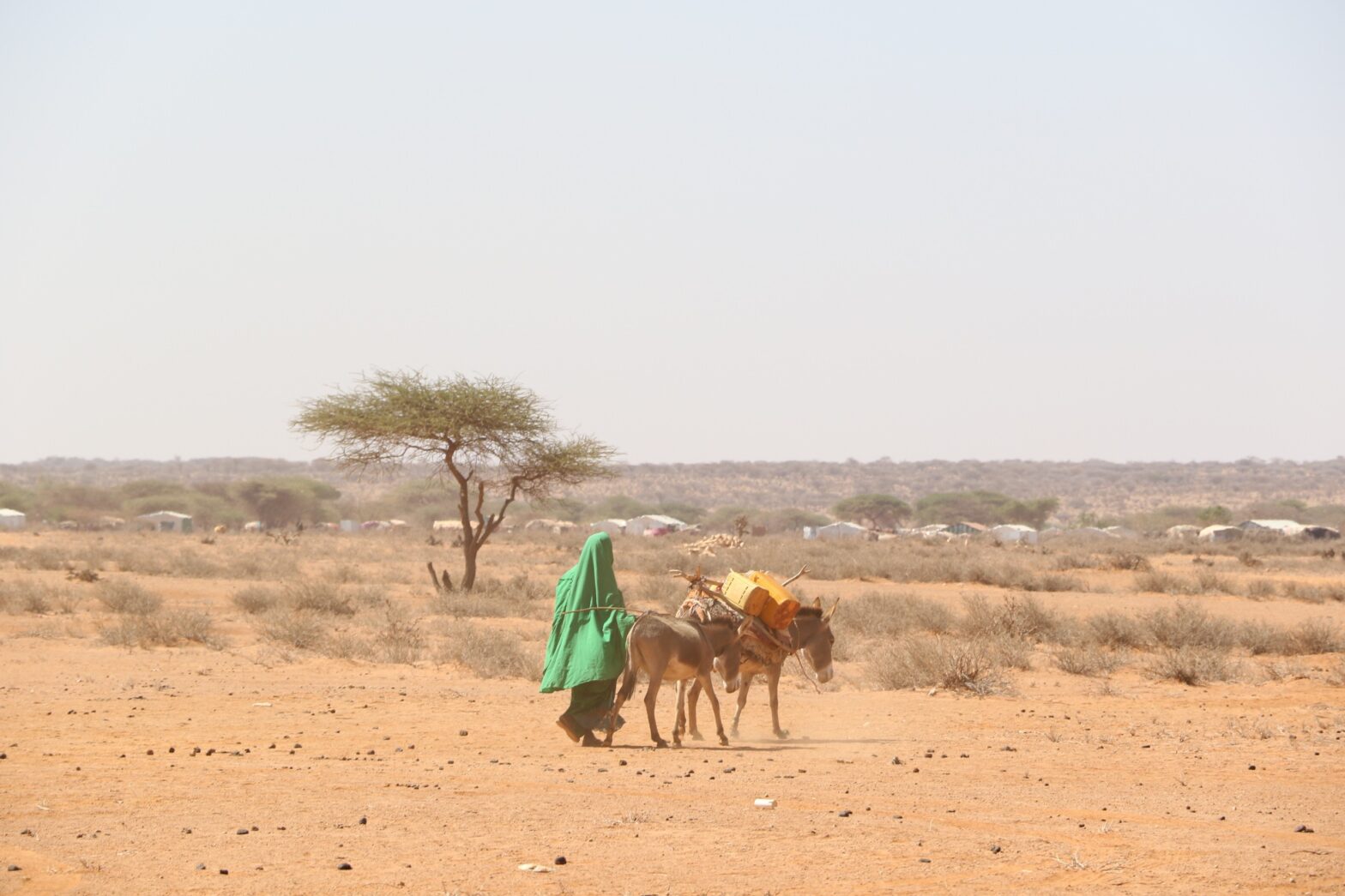Tens of thousands of people are fleeing new fighting in southeast Sudan, as the war spreads further across the country, with civilians running out of anywhere safe to go.
The new clashes in Sennar State – one of Sudan’s biggest agricultural regions – are increasing the risk of famine across the country and putting a major humanitarian aid hub at risk, Islamic Relief is warning.
More than 60,000 people have fled Sinja town this week as the Rapid Support Forces (RSF) captured the area. Heavy fighting is now ongoing in the nearby key city of Sennar, with Islamic Relief staff and other aid workers among thousands who have had to leave the city in recent days due to the extreme insecurity.
Up to 130,000 people are expected to flee Sennar State in the next few days.
Islamic Relief staff report thousands of families now fleeing on foot across the Blue Nile river to try and escape the violence, with large numbers of people now arriving in the already overcrowded eastern Sudan cities of Gedaref and Kassala and many more likely to arrive in the coming days and weeks. Islamic Relief’s team in Gedaref is preparing to provide aid to new arrivals in the city.
There are growing fears that the fighting is now set to spread further east towards Gedaref, which is a key hub for humanitarian staff and supplies. This would be a pivotal moment in the conflict and massively disrupt the humanitarian response at a time when aid is needed more than ever. Islamic Relief staff in Gedaref report huge queues of cars at fuel stations as people stockpile in case they need to quickly abandon the city.
Sennar State was previously considered one of the safest parts of the country, and over the past year hundreds of thousands of civilians had fled here to escape fighting in other regions such as Khartoum and Al Jazira. Many of these people are now having to flee yet again.
Mohammad Sorwar, head of programmes for Islamic Relief in Sudan, says: “People are fleeing Sennar in a desperate state of terror. They’ve fled in a hurry with virtually nothing, and many families have no shelter and are sleeping under the open in the heavy rain. People are walking for days but there are no paved roads between Sennar and Gedaref and the roads have become muddy and difficult to use.
“The war is spreading across the country like a cancer. Many of the people fleeing have been displaced two, three, four or even more times before this, but the war keeps spreading. There are very few safe places left for people to run to. If the fighting reaches Gedaref it will have a devastating impact on aid delivery.”
Sudan is suffering the world’s biggest hunger crisis, with more than 25 million people – over half the country’s population – facing severe hunger and food shortages, and mass starvation imminent in the next three months. The war has forced farmers from their land, destroyed markets and obstructed humanitarian aid.
More than 10 million people are now displaced from their homes and in need of support within Sudan.
Islamic Relief is calling on the international community to step up diplomatic efforts to get parties to the conflict to agree and adhere to a ceasefire, and to urgently increase funding for the humanitarian response. It is calling for parties to the conflict to recommit to peace negotiations, ensure protection of civilians and end the frequent impediments and obstruction of humanitarian aid.
Islamic Relief has worked in Sudan for 40 years, since 1984. In response to the current crisis the organisation has provided aid to more than 830,000 people including food, nutrition, livelihood support, cash, water, sanitation, and healthcare.










BANGLADESH, Jun 21 – Islamic Relief is urgently responding to severe flooding that has devastated northeast Bangladesh, submerging communities and leaving many families homeless. Heavy rains and flash floods have affected around 1.6 million people in the Sylhet, Sunamganj, and Moulvibazar districts in the past three days.
Nearly 75% of Sylhet district is now flooded, with over half of its crops and paddy fields underwater, severely threatening local food security.
“Many families, including young children and elderly people, are now sleeping out in the open by the side of roads, with only plastic sheets to protect them from the heavy rain. Their homes have been washed away and they urgently need food, shelter, and other aid,” Enamul Haque, Islamic Relief Programme Manager in Bangladesh says.
Islamic Relief’s operations are also impacted, with one office under two feet of water. Despite these challenges, the organization is preparing to distribute dry food, hygiene kits to prevent waterborne diseases and cash grants for essentials. Initially, aid will reach 5,000 displaced people, with plans to expand further in the coming days and weeks.
Approximately 30,000 people have moved to shelter centers in Sylhet and Sunamganj, with numbers expected to rise. In total, 825,000 people are affected in Sylhet, 650,000 in Sunamganj, and 193,000 in Moulvibazar. The flooding is expected to continue for the next couple of weeks due to upstream water flow from India.
This disaster follows Cyclone Remal, which recently destroyed thousands of homes in Bangladesh. Islamic Relief aims to provide immediate relief and support, adapting its efforts to meet the evolving needs of the affected communities.